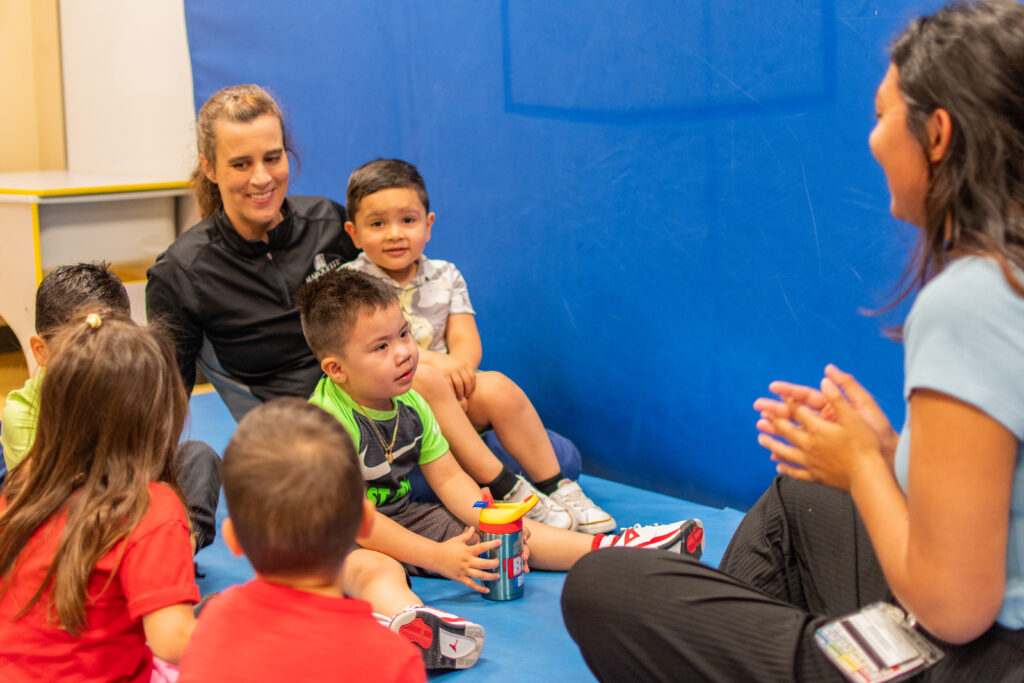Nontraditional graduate student Karen Zielke de Picado has earned her degree in speech language pathology and is going home — albeit with a new set of skills to provide proper care to children who currently have none.
A West Allis, Wisconsin, native, Zielke de Picado met her husband while working with the Peace Corps in Nicaragua after earning degrees in special education and Spanish from the University of Wisconsin-Whitewater.
After a five-year stint at dual language school Heyer Elementary in Waukesha, Wisconsin, where she worked with a pair of speech pathologists, she moved back to Nicaragua with her husband and kids to work at the affluent American Nicaraguan School in the capital city of Managua.

“This is a school where parents send their kids to get ready to attend college in the states and have long, successful careers,” Zielke de Picado says. “And even with the amount of wealth at the school, there are still plenty of students who had speech needs who couldn’t receive proper help.”
That’s when her experience with those speech pathologists illuminated a new path for her.
“I asked myself, ‘How can I help more people?’ And with our plans to eventually move back to my husband’s home village in the mountains, I realized that I could help more kids if I went back to get my degree in speech pathology,” Zielke de Picado says. “And with the presence of cleft lip and cleft palate in my husband’s family and in Nicaragua overall, it seemed like the right fit.”
Set up for success
In the beginning, Zielke de Picado planned to complete the graduate degree online while still in Nicaragua but applied to Marquette when she learned about the Bilingual English-Spanish specialization in the speech-language pathology program.
However, she was hesitant to pack up her life and family and move back to Wisconsin.
“Ultimately, I am thankful for the BIES program because I probably would not have come back to earn my degree in person otherwise,” she says.
Once she started in August 2023, the program’s faculty worked closely with Zielke de Picado with the understanding that post-graduation success looked a little different for her than for a traditional student.
“Wendy Krueger and Stacy Ko both made certain I was going to be fully prepared when I returned to Nicaragua knowing I was going to be starting everything I wanted to do from the ground up,” Zielke de Picado says.
During Zielke de Picado’s time in the program, Krueger, the director of clinical education, kept track of her clinical hours and was generous in offering hands-on experience while understanding she still had a family to take care of as well.
“Wendy really was a mentor for me,” she says. “When discussing my desire to work with children born with cleft lip and palate the very first time we met, she provided me with advice and potential steps I could take to secure a placement on the cleft palate team at Children’s Wisconsin. Following her advice to observe in their clinic helped me secure a placement there during my medical practicum last semester, which was a truly remarkable experience. Wendy has been there for me through everything.”
In her final semester before graduation this May, Krueger placed Zielke de Picado in Milwaukee Public Schools where she is gaining concurrent experience in evaluating bilingual students and providing therapy to replicate what her job will look like in Nicaragua.
“It’s the exact type of experience I’ve needed to leverage my evaluation of students into effective treatment for them,” Zielke de Picado says.

Ko, director of the Bilingual English-Spanish specialization, says Zielke de Picado has excelled in the program thanks to her prior career experience, adding that she is more than prepared to be among the few bilingual speech-language pathologists in the country who seeks to help the underserved.
“Karen has a strong desire to help others and has pursued a master’s degree not for financial gain but to fill a void in Nicaragua where the need for the expertise of a speech-language pathologist vastly outpaces the availability of any speech and language services,” Ko says. “She is clearly dedicated to making a difference in the world through her actions as she begins work that is sure to have a profound impact on those individuals she serves.”
Zielke de Picado has an offer from the American Nicaraguan School in Managua to work as a speech-language pathologist and hopes to spend time volunteering — once a week in with a foundation that provides cleft palate care and Saturdays in her husband’s rural hometown village.
In July, for the third time in her life, Zielke de Picado will pack up her family and belongings and move to Nicaragua — this time armed with the knowledge and skills to make a real, lifelong difference in the lives of children.
“Marquette has been a great place to study, and I’ve had no regrets coming back to earn this degree,” she says.



